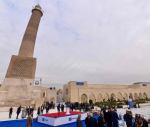You are here
GCC scores high in ‘quality of life’ survey
Oct 24,2016 - Last updated at Oct 24,2016
Citizens in several Arab Gulf states appear to have a higher appreciation for the quality of life available to them in their countries than citizens in most European countries.
This was one of the key findings of a Zogby Research Services (ZRS) study conducted earlier this year.
As part of a larger omnibus study that surveyed a range of attitudes of 24,000 citizens in 22 countries, ZRS measured rates of satisfaction, optimism, confidence and perception of personal security.
The Arab countries covered in the study included all those member in the Gulf Cooperation Council (GCC) and Egypt.
In Europe, ZRS surveyed Germany, UK, France, Norway, Sweden, Finland and Denmark. In Asia, China, Indonesia, Thailand, Singapore, Malaysia and Hong Kong were covered in the study.
The United States and Australia were also included.
Among the questions asked of the respondents in the survey were whether they believed their countries were moving in the right or wrong direction; whether they personally felt better off or worse off than they were five years ago (and the degree to which they felt that they were better off than their parents’ generation); whether they felt they would be better or worse off five years from now (and whether they thought that their children would be better off in the future); and their concern with their financial, personal and physical security.
In the end, in order to create an overall “Quality of life” rating, ZRS compiled for each country the average of the percentage of citizens who expressed confidence in the direction of their country, satisfaction with their current situation, optimism about the future and their assessment of their personal security. This average was termed the “quality of life quotient” (QLQ).
Of the 22 countries covered in the study, Malaysia and Singapore finished in first and second place, with overall QLQs of 59 and 56, respectively.
They were followed closely by the United Arab Emirates, which recorded a 53 QLQ.
Oman (50) and Qatar (46) came in fourth and fifth place, followed by Denmark (42) and Sweden (42).
Saudi Arabia was also in the top 10, with a 39 QLQ. Bahrain came in 12th place with a QLQ of 37.
The US ranked 14th at (35), with the United Kingdom (30) and Germany (29) finishing 17th and 18th, respectively.
The other Arab countries covered in the study, Kuwait (27) and Egypt (23), ranked 20th and 21st.
The lowest ranking country was Indonesia, with a QLQ of two and the poorest scores in all the categories covered in the study.
Among the Arab Gulf states, the UAE was exceptional, ranking in the top tier in each of the areas covered: confidence (60), satisfaction (62), optimism (58) and personal security (38).
Oman scored quite high in satisfaction (57) and ranked highest in personal security (51). And Qatar received high scores in confidence (57) and personal security (41).
The lower ranking received by the US was due to the poor grades Americans gave their country in the areas of confidence (29) and personal security (19).
Confidence and optimism levels in the UK and Germany were also quite low.
While this was not a political survey, per se, there are political ramifications implicit in the results.
For example, what the study establishes is that despite the continuing conflicts plaguing the region (in Iraq, Syria and Yemen) and the concerns that may exist with Iran’s regional policies, the governments of the GCC have done well by their citizens and have earned a measure of stability and security.
At the same time, coming through quite clearly is the unease with the shape of the political landscape in the US, UK and Germany.
As we have seen, with Brexit, the emergence of Trumpism and other far-right nationalist currents, this unease has already had an impact on the politics of these countries.
In contrast, despite reports of unrest and social dislocation resulting from the influx of refugees in the Scandinavian countries, they fared quite well.
In most areas covered in the study, Denmark, Sweden and Norway scored high, receiving QLQs that placed them in the top 10 in overall rankings.
Thus, despite the pressures being experienced in some Scandinavian countries, their governments appear to be taking care to provide for their citizens, and this is reflected in the relatively high confidence, optimism and personal security ratings they receive.
Worrisome, however, are the very low ratings given by Egyptians in the areas of confidence (24), satisfaction (20) and optimism in the future (24).
This should be noted by those concerned with the future of Egypt.












